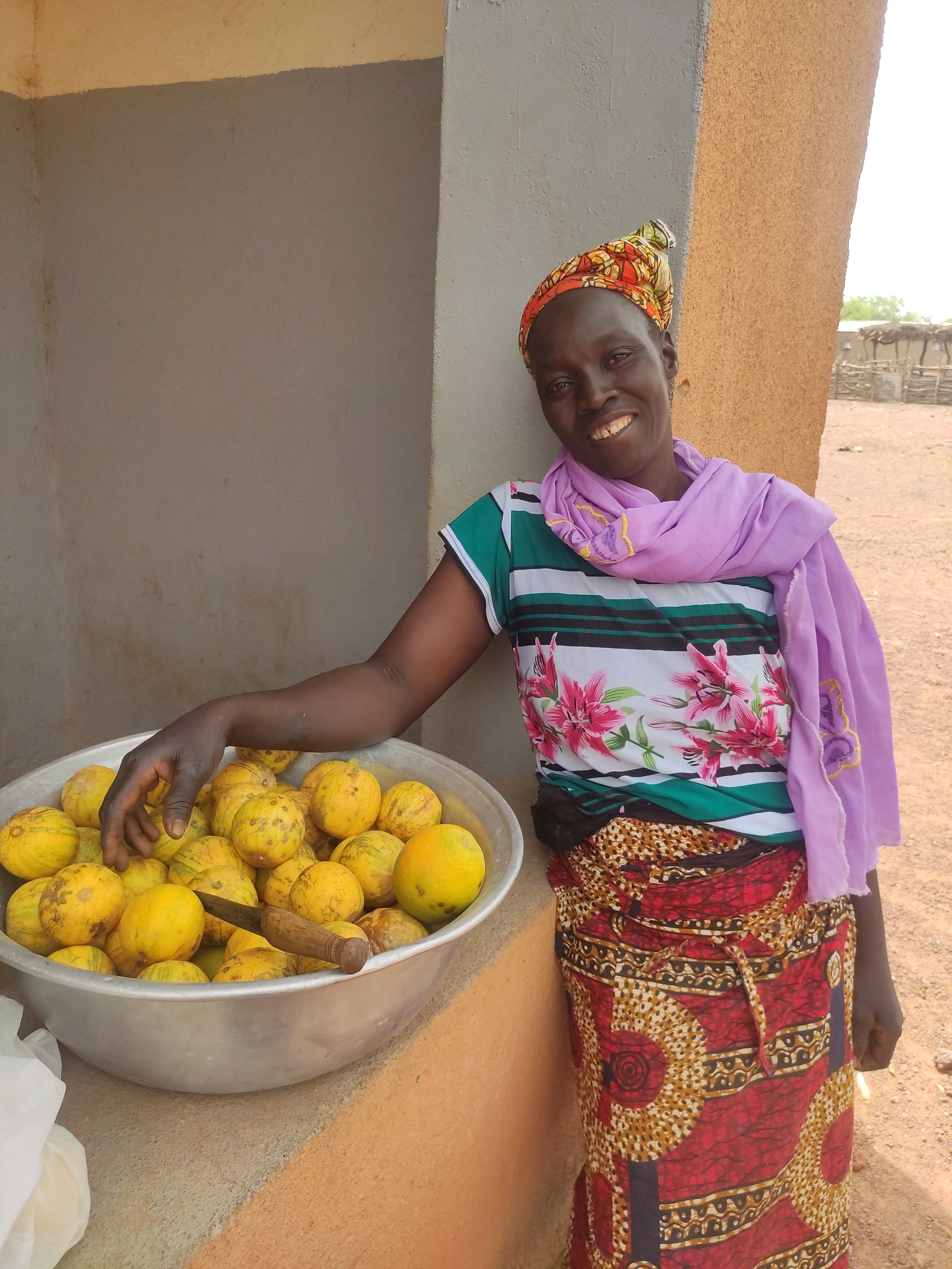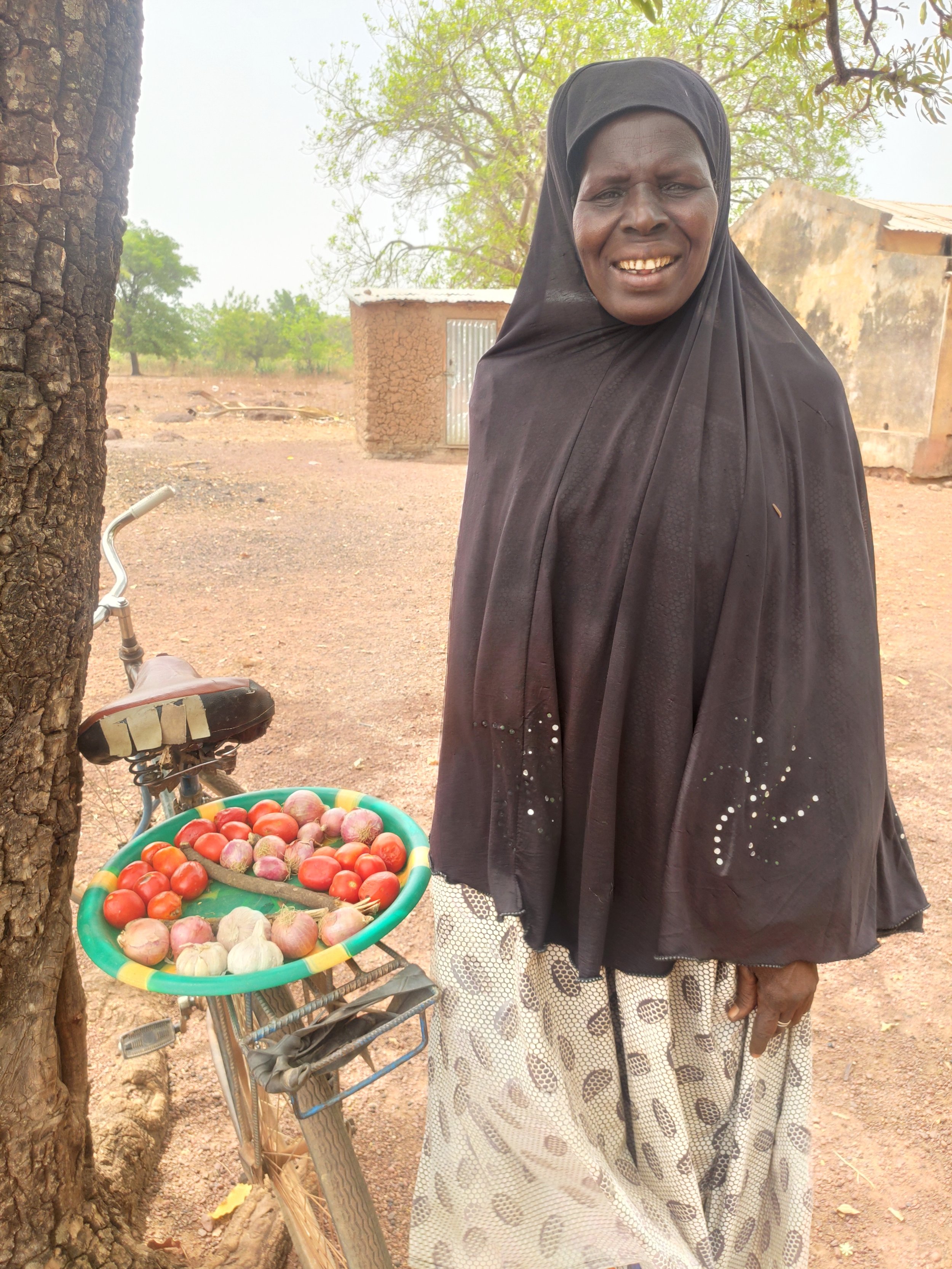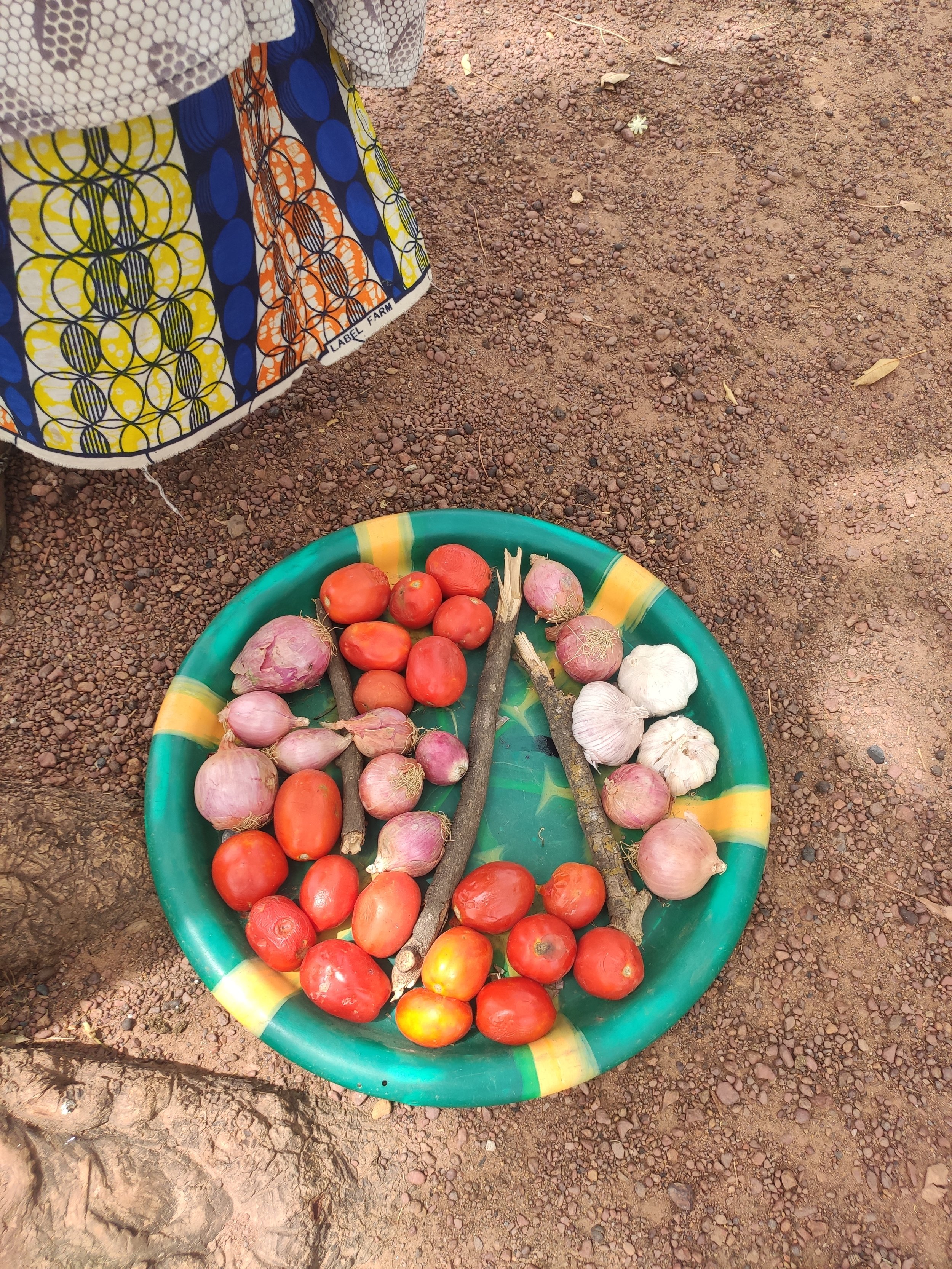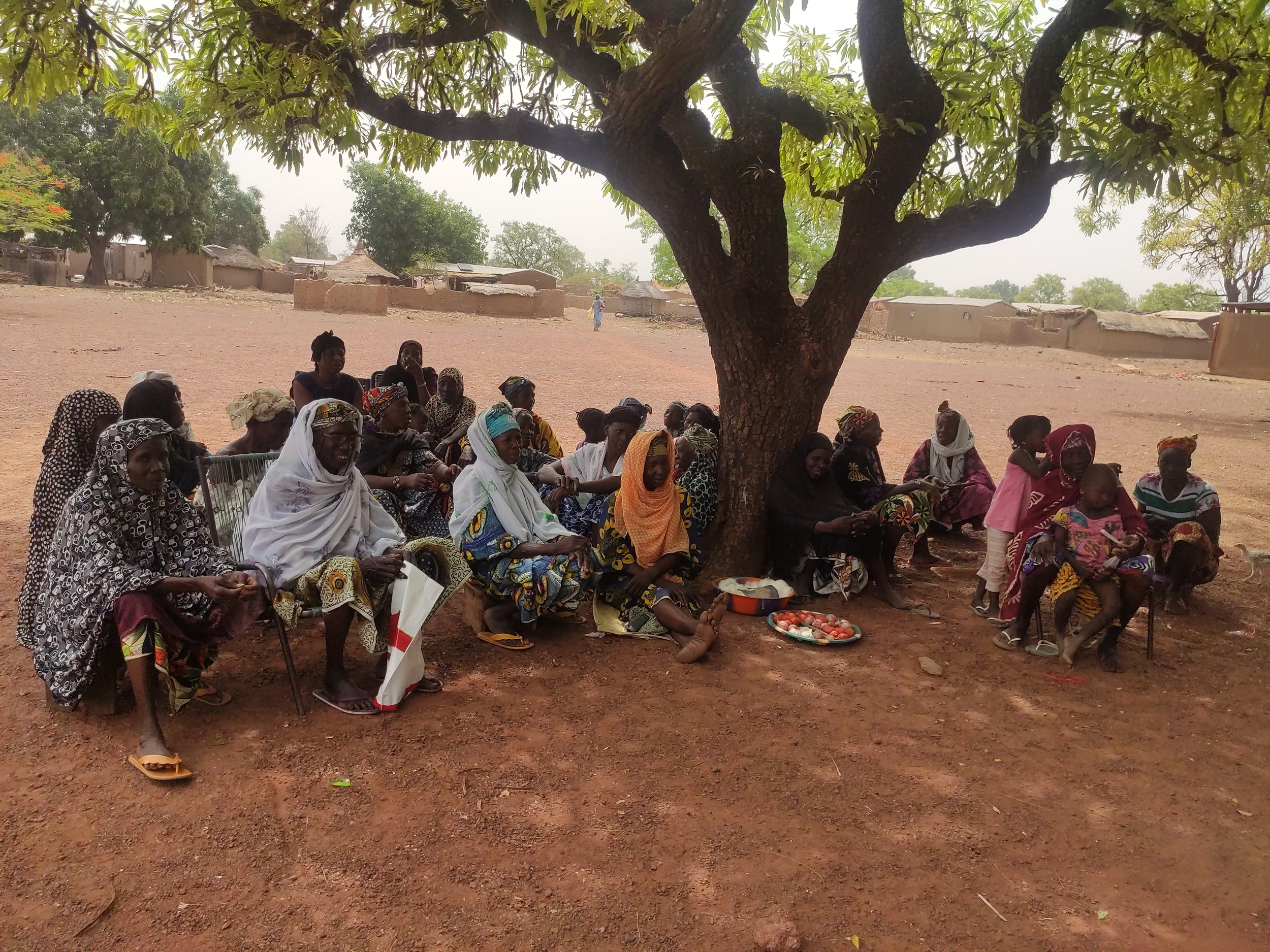This school year, we will host 18 Teacher Peer Meetings, where we bring together teachers to help each improve their skills. With so much work going into organizing these meetings, I always want to check in the teachers to make sure they are useful for their work. At a recent peer meeting, I had a great conversation with one teacher who was brand new to the idea of Peer Meetings – Abdoulaye Doumbia.
How Two Moms Use the Mothers' Loan Fund
By Hindaty Traore, Girls’ Project Manager
This month, I checked in with a group of mothers who are using their entrepreneurial skills to make sure their daughters can attend middle school and build better lives for themselves.
The Cliff and Nita Bailey School in the little village of Beneko is one of the first schools where Mali Rising’s Girls’ Project was piloted. As part of the Project, the mothers of the village received a seed grant to set up what we call a Mothers’ Loan Fund. This Fund loans money to mothers for small businesses. The interest on those loans is pooled to fund school fees for the village girls in perpetuity.
Each village’s Mothers’ Loan Fund is run by the women of the village, and so sets up its own rules and systems. Given the large number of women in Beneko, the loans are distributed every 6 months. Each woman who receives a loan receives 5,000 FCFA. After six months each woman must bring 5000 FCFA plus interest -- which is 1000 FCFA.
Each woman uses her money differently to have her own benefit and interest after every six months. I wanted to share the stories of two women – Bintou Samake and Deniba Bagayoko.




Bintou Samake’s loan
Bintou Samaké is the mother of 7 children, 5 of whom are currently in the middle school of Beneko. She was one of the beneficiaries of the first distribution from Beneko's Mothers’ Loan Fund.
When she received her loan, Bintou went by bike to get oranges from Famana, a village 10km from Beneko, to come back and sell them in Beneko. After selling her oranges she obtained 2500 FCFA as a profit. In six months, she was able to have a personal benefit of 30,000 FCFA. After six months, she returned the 5000 FCFA plus the interest of 1000 FCFA in the fund. “I sell oranges because a lot of people don't sell those here. That's why the profit is a bit high compared to other businesses in the village,” says Bintou.
Before the arrival of the project, Bintou found it difficult to pay the school fees of her five children. She saw her children expelled from school because of non-payment of school fees. She and her husband are farmers so they do not have enough resources. When the Girls’ Project Mothers’ Loan Fund came, the project paid for all the girls' school fees, which reduced her expenses. Bintou likes her side business, but she continues to farm and be a housewife.
Deniba Bagayoko’s loan
Deniba buys condiments such as tomatoes, onions, garlic, and concentrated tomatoes to sell in the village. The profit is not huge but it allows her to repay the money and interest from the Fund and still to have some extra money to set aside aside.
She also often buys cereals such as millet and maize when it is cheaper and keeps them until the price of these cereals is high, then she sells them. “The money that Mali Rising gave us helped me a lot, especially to pay the school fees for the girls because it is the women who pay the school fees for the girls but the women do not have the means to pay that. My daughter is married and her husband's parents do not want to pay her school fees. But thanks to the interest of the fund, she continues her studies,” exlplains Deniba.
Deniba Bagayoko’s last daughter in grade 9. Her daughter loves school but has failed the DEF graduation exam twice. Her daughter is married in another village 3 km from Beneko, and she has a 1-year-old child. Deniba says tat housework and the maintenance of the child prevent her from studying well.
However, Deniba takes care of her daughter’s child so that she can go to school. The daughter’s husband wants her to study but she is in the big family the household chores are enormous, so it is not at all easy. According to Deniba if there was no interest in the fund to pay her daughter's school fees, her studies would be finished because her in-laws refuse to pay. But because she utilized the Mothers’ Loan Fund through Mali Rising, they have not had difficulty paying school fees for the girls.
The women of Benkeo welcome the Mothers’ Loan Fund because it allows them to keep their daughters in school without fear of expulsion. We love to see the Funds succeed because there are just so many benefits – more girls in school, mothers that feel empowered to protect their daughters, and even a little “extra” money for the family home.
The View From Fourth Grade
One Teacher Learns, to Help Him Better Teach
We recently hosted an English Teacher Peer Meting gathering teachers from six of our partner schools. Mali Rising’s Teacher Peer Meetings allow teachers to gather and help each other build their skills. In Mali, teachers rarely come together and have discussions on how improve their own teaching skills, all the six teachers who attended this recent meeting were very excited to join together. Mr. Sio Coulibaly was one of the participating teachers. He was particularly helpful to his peers, peppering them with questions and or providing helpful answers.
Textbooks: Tools We Take for Granted
As one of my former professors —Pr Ibrahim Sagayar — said: “A teacher or a student without a textbook is like a soldier on the battlefield without a weapon”. Yet all too often in Mali, teachers and students are not armed with textbooks. I recently discussed this problem with two of our partner principals — the principal of Sue Chung Chiu Middle School of Simidji, Mr. Essai Mikoro and the principal of Little Heroes Academy I Middle School of Mana, Mlle. Djenebou Niama Coulibaly.
Up Close With Two Teachers From Banko
At a recent peer meeting we had the chance to talk with two teachers from one of our newer school – Christiana Norris Middle School in the village of Banko. Teachers are what make a school a life-changing place, so great teachers are key to our students’ futures. Get to know two of Banko’s teachers just a little bit through these mini-profiles from our chat.
Mrs. Kone: A Mother Making a Difference for Girls
n Mali as in other African countries, historically few women went to school. Instead, many women were married at an early age and men did not consider women them when making certain core decisions in the society. But today this trend is changing in many regions of Mali and elsewhere. For our work at Mali Rising, we see this change happening in our school committees — the group of local people in charge of managing each school in Mali. I recently met a woman who exemplifies this change — Aicha Kone. Ms. Kone is a female leader who joined the school management committee of the Neways Academy in the village of Touban to champion the cause of girls.
Great Teachers Make Great Schools
Mali’s teachers face many unique challenges, such as class sizes of more than 100 students and a lack of textbooks. But one challenge they face is one that any teacher around the world would recognize – how to engage their students and encourage questions and discussion. At a recent Mali Rising Teacher Training, we tackled this exact problem and inspired one young teacher -- Benzamé Sanou – to return to his classroom with new ideas and new energy.
Teachers Helping Teachers
Aminata Becomes a Clean Hands Expert!
The Little Heroes Academy I Middle School of Mana has more than one hundred students. The school has many challenges to address. One of the main challenges is how to keep kids healthy and be able to attend school. Mali Rising is doing our small part to help with that challenge, by providing hygiene education classes. One student, Aminata, really took the lesson to heart!


